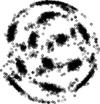You are here: Foswiki>Cosmo Web>DoktoratTematy (07 May 2018, BoudRoukema)Edit Attach
Doktorat na TCfA
Warning: This info may be incomplete and partly out of date!administrative steps
- getting documents to Dziekanat + http://irk.umk.pl : deadline often two possible deadlines, sometimes one in early July, and usually one around late August/early September
- http://www.fizyka.umk.pl/wfaiis/?q=node/28 (pl)
- http://wwwold.fizyka.umk.pl/wfaiis/?q=node/68
http://fizyka.umk.pl/wfaiis_en/?q=node/28 (en) - info here is partly out of date
- interview (rozmowy): date a few days after each deadline
formal documents
Mostly in Polish:- https://pl.wikipedia.org/wiki/Studia_trzeciego_stopnia - brief description in Polish
- http://prawo.sejm.gov.pl/isap.nsf/DocDetails.xsp?id=WDU20170001696 - Rozporządzenie Ministra Nauki i Szkolnictwa Wyższego z dnia 9 sierpnia 2017 r. w sprawie studiów doktoranckich i stypendiów doktoranckich
- HigherEducationLaws
conditions
- stipends:
- UMK Szkola Doktorancka
- standard stipend only lasts for one year; new competition for stipends each year of doctorate, depending on chance and a supposedly meritocratic points system
- grants can be applied for in the national grant system (NCN), partly written in English, partly written in Polish
- most likely out-of-date: as of 2005: normal stipends are only for Polish citizens (EU rules should, in principle, allow other EU citizens, but this may not yet be implemented in national law nor in UMK rules)
- in addition to research, the doctorant must do coursework + teaching:
- http://wwwold.fizyka.umk.pl/wfaiis/?q=node/68 - main Faculty page for PhD studies
- requirements in English as of 2017 (archive)
- main seminar - 11:00 Monday at Toruń Centre for Astronomy, most Mondays during term time
- study several courses and take exams
- unpaid teaching/tutoring - 30 hours in first year, 60 hours in each successive year
- http://wwwold.fizyka.umk.pl/wfaiis/?q=node/68 - main Faculty page for PhD studies
- the "przewod doktorski" (declaration of intent to submit a thesis) must be "opened" by the second year at latest
practical life
- http://www.foreignersinpoland.com/cost-of-living-in-poland/
- 25-40 sq.m. flat for Toruń 2018-03-30 - lots of advertisements for 800 to 1500 PLN/month - search engine keywords: wynajęcie mieszkania Toruń (literally: renting flat Toruń)
- Heating, Water, Garbage = czynsz - 300 to 400 PLN/month for 25-40 sq.m. as of 2018-03 is reasonable; +electricity 100 PLN/month or so +internet 50 PLN/month or so
- https://www.umk.pl/en/erasmus/life/guide/ (even if you are not officially an Erasmus student, these guidelines look useful)
visits by scientists from Central/Eastern Europe
- Mianowski Fund: 1-12 months research visit, if you already have a position and a degree (master's maybe enough?) in your home country
- mianowski waw pl/programme.htm
Ewentualny Tematy
Reproducible galaxy formation pipeline
In ArXiv:2010.03742 a reproducible galaxy formation pipeline is established. The initial results showed that void location contributes to a later epoch of a dark matter halo's initial collapse, which tends to imply a lower density at the collapse epoch of the halo, and a higher dimensionless spin parameter of the disk that forms in the halo, tending to imply a lower surface density of matter in the disk. Both effects imply that void location contributes to low surface brightness galaxy (LSBG) formation. Several extensions to develop these initial results further would be possible as straightforward and potentially publishable undergraduate research projects. A side benefit of the project would be an introduction to a state-of-the-art method of making a scientific computational project reproducible by independent scientists. http://cosmo.torun.pl/Cosmo/DoktoratTematyNon-perturbative N-body/GR simulations
N-body simulations (e.g. AstroPh:0411043, ArXiv:1105.1082, AstroPh:0111367) used for the modelling of 0.1 to 5 Gpc scale structure formation assume a rigid Friedmann-Lemaitre-Robertson-Walker (FLRW) background against which perturbations grow according to Newtonian gravity, while the FLRW background itself evolves assuming that structure formation do not form. An UMK-Lyon project is underway to develop relativistic methods of correcting N-body simulations for this contradiction, by using scalar averaging (AstroPh:9912347, ArXiv:0707.2153, ArXiv:0803.1401, ArXiv:1203.6263, ArXiv:1303.6193). The main result of the full project (ArXiv:1706.06179) is that more accurate simulations help show that "dark energy" is a misinterpretation of the virialisation epoch, during which much of the most massive galaxies and galaxy clusters formed. The student's contribution would be in checking caveats of this calculational method and/or proposing extensions. Other codes including Einstein Toolkit/FLRWSolver or Gevolution could alternatively be considered for the project. http://cosmo.torun.pl/Cosmo/DoktoratTematy- dummy.txt: comment will be added later
- UMK_Rok2017_poz136_Uchwala60_PhD.txt: urzędowy dokument - Rok 2017 poz. 136 - Uchwał 60 - w sprawie wytycznych tworzenia planów i programów studiów doktoranckich
| I | Attachment | Action | Size | Date | Who | Comment |
|---|---|---|---|---|---|---|
| |
UMK_Rok2017_poz136_Uchwala60_PhD.txt | manage | 19 K | 22 Mar 2018 - 12:16 | BoudRoukema | urzędowy dokument - Rok 2017 poz. 136 - Uchwał 60 - w sprawie wytycznych tworzenia planów i programów studiów doktoranckich |
Edit | Attach | Print version | History: r13 < r12 < r11 < r10 | Backlinks | View wiki text | More topic actions
Topic revision: r13 - 07 May 2018, BoudRoukema
 Copyright © by the contributing authors. All material on this collaboration platform is the property of the contributing authors.
Copyright © by the contributing authors. All material on this collaboration platform is the property of the contributing authors. Ideas, requests, problems regarding Foswiki? Send feedback


